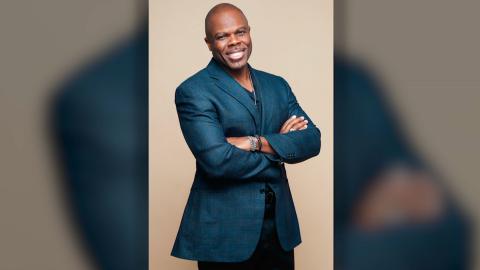Hey Google, Is God Real?
AFFIRMATION OF SCIENCE
Lee is perhaps best-known for his book, The Case for Christ, later made into a hit movie, which tells of his quest to prove – or disprove -- the truth of Christianity. In his new book, Is God Real? he expands his research by interviewing eight experts in science, history, theology, and philosophy to provide more extensive evidence. Lee also senses a tremendous thirst for truth in our world today. “More than two hundred times a second, around the clock, someone is asking an online search engine about God – often with the simple inquiry, ‘Is God real?’ he cites. “If you type that question into Google, you’ll get 3.7 billion results in two-thirds of a second – a digital tidal wave that generates more confusion than enlightenment.”
In his interview with prolific author and famed philosopher William Lane Craig, PhD, the pair examined whether the universe required a creator. Some main points that stemmed from that conversation are:
- Whatever begins to exist has a cause. “You see, these (subatomic) particles, if they are real, do not come out of nothing,” Craig explains.
- The universe had a beginning. As they discussed other possible theories of the origin of the universe, Lee says Craig was able to explain why they fall short, either because they violate the laws of physics or lack any scientific explanation.
- Therefore, the universe has a cause. Says Craig, “The philosophical and scientific evidence of contemporary cosmology was pointing persuasively toward the conclusion that a personal creator of the universe does exist. In other words, God is real.”
Another interview with physicist Michael Strauss, PhD, focused on the idea that the universe needs a “fine-tuner.” Lee explains, “That is the physics of the universe are finely tuned on a razor’s edge in a way that defies the explanation that it’s merely the result of chance. Rather, it’s evidence for a creator.”
Strauss adds that the creator must be transcendent, existing apart from his creation and before the physical world; that he must be timeless, since he existed before physical time was created; he must be powerful, given the immense energy creation would require; he must be smart, given the precision of the created order; he must be personal in order to make a decision to create; he must be creative, given the complexity and beauty of the universe and life itself; he must be caring, having made a habitat suited perfectly for us; and he must be unique, because of a scientific principle which says there would have been just one creator. “All of those qualities -- transcendent, spirit, eternal, powerful, smart, personal, creative, caring, unique – just so happen to match the description of the God of Christianity,” Lee sums up.
AFFIRMATION OF THE RESURRECTION
“The cross either unmasked Jesus as a pretender or opened the door to a supernatural resurrection that has irrevocably confirmed his divinity,” Lee posits. Drawing on the vast knowledge of Michael Licona, PhD, who earned his doctorate with his study of Jesus’ resurrection, Lee confirms that there is ample historical proof. “I can summarize it in about a minute, based on four terms that start with E,” Lee says. Each one refers to evidence that proves Christ was resurrected, and therefore God, as He claimed:
EXECUTION. “This fact is as solid as anything in ancient history,” Licona states. “Jesus was crucified and died as a result. The scholarly consensus is absolutely overwhelming,” Lee adds that even the Journal of the American Medical Association published an analysis of the crucifixion: “Clearly, the weight of the historical and medical evidence indicates that Jesus was dead [even] before the wound to his side was inflicted.”
EARLY ACCOUNTS. In the Scriptural report of Jesus’ resurrection, including the names of eyewitnesses and groups to whom he appeared, one 500-people strong, scholars have dated it to be within months of his death. Lee explains, “That kind of immediacy effectively rules out the possibility that the resurrection was the product of legendary development over time.”
EMPTY TOMB. Three of Licona’s many strands of evidence: the fact that the resurrection was proclaimed in Jerusalem, the very same city, where it occurred; that fact that Jesus’ enemies also attest to His missing body; and the use of the testimony of women, normally not accepted by Jewish or Roman cultures of that day.
EYEWITNESSES. “We have nine ancient sources, inside and outside of the New Testament, confirming and corroborating the conviction of the disciples that they encountered the risen Christ,” Lee says. “That’s an avalanche of historical data!”
WHY IS THERE SUFFERING?
John Stott believed that the chief obstacle to belief in God is the presence of unspeakable pain and suffering in this world. To explore this question, Lee spoke with Peter Kreeft, PhD, professor and author of 80 books, whom he refers to as a "first-rate philosopher.” When he asked Kreeft how he responds to the question of God and suffering, the professor offered a different perspective. “Now, the classic defense of God against the problem of evil is that it’s not logically possible to have free will and no possibility of moral evil. In other words, once God chose to create human being with free will, it was up to them rather than to God as to whether there was sin or not. The source of evil is not God’s power, but rather mankind’s freedom.”
Lee then asked why God didn’t create a world without human freedom? “Because that would have been a world without humans,” Kreeft says. He added that it would have been a world without suffering, but also a world without love. “Real love – our love of God and our love of each other – must involve a choice. The blame, ultimately, lies with us. He did his part perfectly; we’re the ones who messed up.”
Another aspect of the question of suffering that Lee addresses with Kreeft is seeing evil people get away with all manner of wickedness, as world events seem to illustrate even now. “Why doesn’t he intervene?” he asked Kreeft. “People aren’t getting away with it,” he replied. “Justice delayed is not necessarily justice denied. There will come a day when God settles accounts and people will be held responsible for the evil they’ve perpetrated and the suffering they’ve caused.” When addressing how God can bear all the suffering, Kreeft declares, “He did!"
God’s answer to the problem of suffering is that He came right down into it. Many Christians try to get God off the hook for suffering; God put Himself on the hook, so to speak – on the cross.” It’s Lee’s hope that reading Is God Real? deepens the faith of believers, who will reach out to friends and family with the truth, and that God brings them to faith in Christ.
Discover more about Lee Strobel by visiting his website: www.LeeStrobel.com, where you can also purchase his book, Is God Real?




